Looking For a Dentist in Lexington, KY – What Is Preventive Dentistry?
Two of the most common reasons people avoid preventative dental care are lack of time and finances. Another major reason is fear.
Despite that, preventative dentistry is extremely important not just for your teeth, but your entire body as well. When dental problems progress, the are chances the damage is irreversible.
If you’re on the fence about visiting a dentist in Lexington, KY, let’s put your mind at ease and look at why preventative dentistry is needed.
What is Preventative Dentistry?
Preventative dentistry is the practice of regularly caring for your teeth by using good oral hygiene techniques and practices. In this way, you maintain the health of your teeth and body.
Without preventative dentistry, you may succumb to oral and other health problems such as:
- Gum disease, like gingivitis and periodontal disease
- Loss of teeth
- Oral cancers
- Tooth decay
- Bacterial infections
- Heart problems
- Cavities
- Complications from diabetes
As you can see, caring for your teeth and mouth is critical to your health. Many of these problems are detected at dentist’s appointments and in some cases, like gingivitis, may be reversed to save your teeth and gums.
Children, especially, need to develop healthy oral habits as early as possible in life to avoid the pain and frustration that may follow from poor oral care.
Types of Preventative Dentistry
So, what are the types of preventative dentistry and why are they important? Here are a few to consider.
1. Dental Cleanings
One of the best and easiest ways to preserve and protect your teeth is to schedule regular dental cleanings.
Over time, plaque forms on your teeth, and when it’s not removed, it turns into tartar. Tartar eats away at the gum line and may cause gum disease. Regular dental cleanings keep plaque and bacteria at bay.
Your dentist also checks for dental problems, so visiting your dentist may help you find potential problems that could become worse over time.
2. Sealants
Cavities are one of the main reasons that people visit the dentist. When food particles become stuck on the teeth or sit for too long, cavities form and they need to be removed and filled.
However, if you opt for sealants, you can lower your chances of cavities significantly. Sealants are a thin coating that covers the top of your tooth and acts as a shield against food particles. They’re especially beneficial for children who need to develop their brushing habits over time.
3. Oral Testing
Periodontal disease affects nearly half of adults living in the United States. While this is a sobering statistic, there are services offered to find out if you’re at risk.
Oral DNA testing is a type of diagnostic dentistry that looks at the type of bacteria that’s in your mouth and determines what treatments work best to combat it and avoid deadly diseases. This form of preventative care gives you peace of mind, as your dentist works with you to give you the utmost care.
4. Fluoride Treatments
Fluoride is an important mineral that’s necessary for the health of your teeth. When you visit your dentist they may recommend a fluoride varnish to strengthen your teeth. This treatment can be done every few months depending on the health of your teeth.
Children receive fluoride at their visits because their teeth are still growing and forming.
5. Restorative and Cosmetic Procedures
You might be thinking, “What are restorative dentistry and cosmetic procedures?”
While these types of dentistry are not considered preventative, they can improve the look and feel of your mouth, which in turn may cause you to care for your teeth more.
Restorative dentistry includes fixing oral problems that arise from traumatic situations like injury or illness. Cosmetic dentistry involves methods or techniques to whiten or straighten your teeth.
The Patient’s Roll in Preventative Dentistry
While the dentist plays a vital role in your oral care, you can help! There are several preventative measures you can take in your dental care before you step into a dentist’s office.
Here are some ways that you help protect your teeth.
1. Healthy Oral Habits
Regular brushing and flossing are tried-and-true methods of keeping your teeth healthy and strong. You should be brushing after meals, in the evening before bed, and flossing once a day.
These practices will go a long way in warding off any type of oral problems like gum disease and keep other expensive costs at bay.
2. Healthy Eating
Consuming healthy foods like fruits, vegetables, grains, meat, and dairy all aid in keeping your mouth clean and healthy. Added sugars or processed foods cause bacteria build-up on your teeth and may cause problems. Crunchy foods like carrots help remove bacteria and other build-ups on your teeth
Also, indulging in sweet foods deprives your teeth and body of the nutrients it needs to maintain good bone health.
3. Visiting the Dentist
Visiting your dentist at least yearly is recommended, and sometimes twice a year depending on your situation. Regular dental cleanings will remove all the harmful bacteria from your gums and teeth.
Your dentist can also offer you oral education on the best ways to care for your teeth at home. They may even provide you with a toothbrush, floss, or mouthwash.
Do You Need a Dentist in Lexington, KY?
By visiting your dentist and taking your role in preventative dentistry, you can feel confident about having a healthy mouth and teeth in the future. Preventative dentistry is there to help!
Are you looking for a dentist in Lexington, KY? Our caring team of professionals at Justice Dental can help! Contact us today with questions or to set up your appointment.



